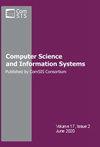面向可持续性的路线生成,用于拼车服务
IF 1.2
4区 计算机科学
Q4 COMPUTER SCIENCE, INFORMATION SYSTEMS
引用次数: 0
摘要
可持续性是为了当代人和子孙后代的利益而维持和保护自然和人为系统的能力。可持续发展的三大支柱是社会、经济和环境。这些支柱是相互依存和相互联系的,这意味着一个领域的进展可能对其他领域产生积极或消极的影响。这需要明智的方法来平衡这些好处,并找到关于可持续性的所有三个支柱的最佳解决方案。通过使用人工智能方法,特别是用于多目标优化的遗传算法,我们可以更好地理解和管理复杂系统,以实现可持续性。在以可持续发展为导向的拼车环境中,遗传算法可用于优化寻路,以降低运输成本并减少排放。这项工作通过使用人工智能,特别是用于多目标优化的遗传算法,来提高交通系统的效率和可持续性,从而为这一领域做出贡献。通过使用这种方法,我们可以在实现可持续性三大支柱的目标方面取得进展。本文章由计算机程序翻译,如有差异,请以英文原文为准。
Sustainability-oriented route generation for ridesharing services
Sustainability is the ability to maintain and preserve natural and man made systems for the benefit of current and future generations. The three pillars of sustainability are social, economic, and environmental. These pillars are interdependent and interconnected, meaning that progress in one area can have positive or negative impacts on the others. This calls for smart methods to balance such benefits and find solutions that are optimal with respect to all the three pillars of sustainability. By using AI methods, in particular, genetic algorithms for multiobjective optimisation, we can better understand and manage complex systems in order to achieve sustainability. In the context of sustainability-oriented ridesharing, genetic algorithms can be used to optimise route finding in order to lower the cost of trans portation and reduce emissions. This work contributes to this domain by using AI, specifically genetic algorithms for multiobjective optimisation, to improve the efficiency and sustainability of transportation systems. By using this approach, we can make progress towards achieving the goals of the three pillars of sustainability.
求助全文
通过发布文献求助,成功后即可免费获取论文全文。
去求助
来源期刊

Computer Science and Information Systems
COMPUTER SCIENCE, INFORMATION SYSTEMS-COMPUTER SCIENCE, SOFTWARE ENGINEERING
CiteScore
2.30
自引率
21.40%
发文量
76
审稿时长
7.5 months
期刊介绍:
About the journal
Home page
Contact information
Aims and scope
Indexing information
Editorial policies
ComSIS consortium
Journal boards
Managing board
For authors
Information for contributors
Paper submission
Article submission through OJS
Copyright transfer form
Download section
For readers
Forthcoming articles
Current issue
Archive
Subscription
For reviewers
View and review submissions
News
Journal''s Facebook page
Call for special issue
New issue notification
Aims and scope
Computer Science and Information Systems (ComSIS) is an international refereed journal, published in Serbia. The objective of ComSIS is to communicate important research and development results in the areas of computer science, software engineering, and information systems.
 求助内容:
求助内容: 应助结果提醒方式:
应助结果提醒方式:


